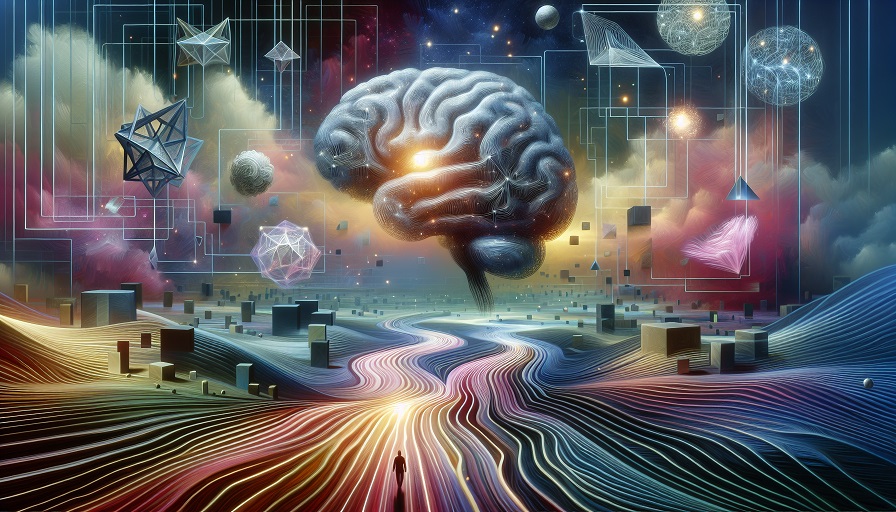
Artificial intelligence is extraordinary. It can write code, predict stock trends, generate artwork, and answer complex questions in seconds. But no matter how powerful AI becomes, the human brain holds a secret weapon: qualities machines can’t replicate. These qualities – adaptability, creativity, intuition, and emotional intelligence – give humans an enduring edge. While AI dominates in speed and scale, it is the brain’s hidden strengths that shape meaning, purpose, and innovation. Let’s uncover what makes your neurons unbeatable, even in the age of algorithms.
Contents
Adaptability: Flexibility Machines Can’t Match
AI excels in narrow tasks. Train it on medical images, and it can identify anomalies with astonishing accuracy. But give it a task outside its training, and it fails. The human brain, by contrast, adapts to entirely new environments without needing engineers to rewrite its code. This flexibility is a secret weapon in an ever-changing world.
Neuroplasticity in Action
Neuroplasticity allows your brain to rewire itself. Learn to play an instrument, switch careers, or recover after injury, and neurons reorganize to handle the new challenge. No machine has this built-in capacity for change.
Resilience After Setbacks
When a server crashes, it needs repair or replacement. When a brain faces setbacks, it can reroute. Stroke survivors, for example, often regain lost abilities by training other parts of the brain to compensate. This resilience ensures humans stay adaptable in ways AI cannot.
Creativity: Generating the Truly New
AI can mimic styles, remix data, and generate content that looks creative. But true originality requires breaking patterns, imagining the impossible, and embedding emotion into work. Creativity is the human brain’s second secret weapon.
The Power of “What If”
Humans constantly ask questions like, “What if gravity reversed?” or “What if we could travel faster than light?” These leaps of imagination lead to scientific breakthroughs and artistic revolutions. AI does not ask questions – it only responds to them.
Art With Emotion
A painting created after personal loss carries weight AI cannot replicate. A story inspired by childhood memories resonates because of lived experience. Machines may generate imitations, but only humans infuse creations with heart.
Intuition: Fast Decisions in Complex Situations
Algorithms rely on explicit data to function. But life often presents incomplete, uncertain, or conflicting information. In these moments, humans rely on intuition – a gut sense shaped by experience and subconscious pattern recognition.
Split-Second Choices
A firefighter navigating a collapsing building doesn’t calculate probabilities. They act on intuition built from years of experience. This ability to respond instantly and effectively in unpredictable conditions is something machines cannot yet match.
The Subconscious Edge
Much of human decision-making happens below awareness. Intuition draws on countless subtle cues, memories, and emotions. AI lacks this subconscious depth, leaving humans with an advantage in ambiguous or high-stakes situations.
Emotional Intelligence: The Human Connection
AI may simulate empathy with scripted responses, but it cannot truly feel. Emotional intelligence – the ability to understand, manage, and connect with emotions – is a uniquely human strength. It shapes relationships, leadership, and creativity in ways machines cannot reproduce.
Building Trust
A manager leading a team through stressful change doesn’t just relay data. They provide reassurance, motivation, and understanding. These emotional nuances create trust, which is essential in human collaboration.
Meaning Through Experience
AI can compose a speech, but it lacks lived history. Humans connect through shared struggles, triumphs, and stories. Emotional intelligence ensures communication resonates beyond logic.
Efficiency: Compact Power Compared to Servers
AI’s brilliance requires massive energy. Server farms consume megawatts to train and operate large models. Your brain, by contrast, runs on about 20 watts – the same as a dim lightbulb. This unmatched efficiency makes neurons a hidden superpower.
Always On, Always Portable
Your intelligence travels wherever you go, with no need for warehouses or cooling towers. This portability allows you to function creatively and adaptively in any context – something AI cannot claim.
Self-Maintenance
While servers require constant updates and monitoring, your brain maintains itself. During sleep, it consolidates memory, clears toxins, and restores balance. This self-care system keeps neurons sharp without external engineers.
How to Strengthen the Brain’s Secret Weapon
Recognizing the brain’s hidden advantages is only the beginning. To stay ahead of AI, humans must optimize and train their cognitive strengths. The stronger the brain, the more powerful its edge becomes.
Fueling Neurons
- Nutrition: Omega-3s, antioxidants, and vitamins support neuron health and energy.
- Exercise: Physical activity boosts blood flow, oxygen, and neurochemicals linked to creativity and focus.
- Sleep: Rest strengthens learning, memory, and problem-solving abilities.
Sharpening Mental Skills
- Mindfulness: Strengthens focus and reduces stress.
- Divergent Thinking: Exercises that push you to generate many solutions build creativity.
- Lifelong Learning: Constant skill acquisition enhances adaptability.
Cognitive Support
Nootropics and brain supplements can help sustain focus, memory, and stamina. Just as AI depends on servers and cooling systems, the human brain benefits from nutritional and lifestyle support to function at its best.
Case Studies: Humans Outshining AI
Medicine
AI helps scan for diseases, but doctors apply empathy, intuition, and judgment to care for patients. The combination of technical data and emotional connection ensures better outcomes.
Education
AI personalizes lesson plans, but teachers provide encouragement, empathy, and context. Students remember the teacher who inspired them, not the software that assigned homework.
Business
AI can analyze markets, but entrepreneurs see opportunities through creativity and risk-taking. Innovation requires courage and vision – qualities that machines lack.
The human brain’s secret weapon against AI is not raw speed or scale – it’s adaptability, creativity, intuition, and emotional intelligence. These qualities allow humans to thrive in ways machines cannot. AI may assist and amplify, but it cannot replace the spark of imagination, the warmth of empathy, or the resilience of a brain that rewires itself for every challenge. By nurturing and optimizing these hidden strengths, humans ensure they remain not only relevant but essential in an AI-driven world.

